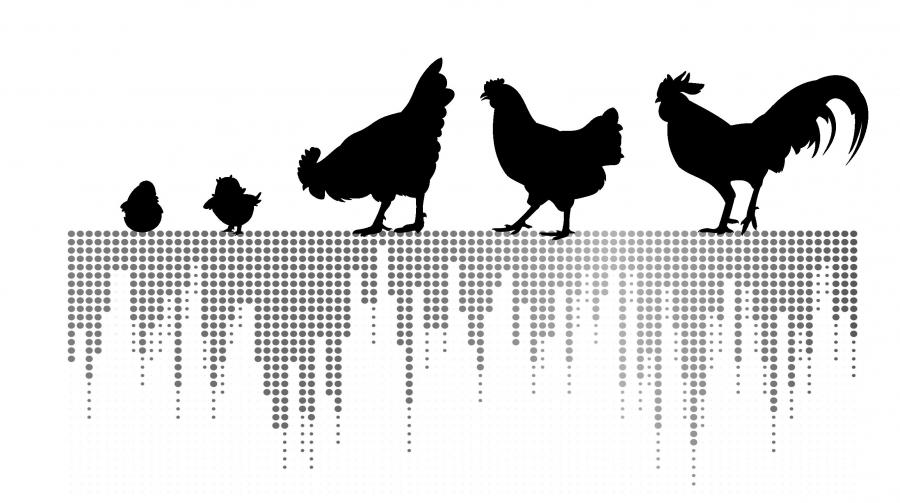Acoustic precision livestock technologies applied in intensive production of Broiler Chickens for measuring productivity and animal welfare

Over the last century, the world's population has grown exponentially with an increase of 5 800 million people. The increase in the world's population has had a direct impact on global food demand. With a constantly growing population, the need to feed more people has become a primary concern, intensifying production. In our diets, meat protein plays a key role and provides a wide range of essential nutrients for the human body. In particular, meat protein from white meat is cheaper to produce due to the poultry's high feed conversion efficiency, short production cycle (6-8 weeks) as well as low infrastructure costs as less space is required for poultry farming. Being a cheap protein, it is mostly produced intensively, with a number of negative impacts on the environment, animal welfare and human health among the most prominent. Precision farming technology can play a key role in intensive production by improving efficiency, monitoring animal welfare, automating processes, generating control alarms to avoid welfare problems, among others.
As birds are very vocal animals, this thesis aims to analyse several applications of precision livestock farming technologies using bio-acoustic sensors that record the vocalisations of chickens and hens in intensive production environments and extract acoustic features. The applications proposed in this thesis are: (i) To detect the welfare of birds when they are subjected to stressors such as high concentration of CO2 or respiratory inflammations due to the side effects of the vaccination reaction (ii) To quantitatively determine the effectiveness of the administration of a complementary feed that helps to improve the welfare of birds (iii) To automate the detection of stressful situations through bio-acoustic sensors in birds in order to apply corrective measures with the aim of improving the welfare of the animals. The thesis includes the selection, integration and programming of hardware for data collection campaigns, data processing, data analysis using visual and statistical methods and artificial intelligence models.
The results show that acoustic descriptors of bird vocalizations allow the detection of bird stress in the analyzed stressors as well as statistically significant differences in the detection of the effectiveness of an early feeding supplementary feed administered in the hatchery. Finally, it is determined that the detection of side effects of vaccine reactions against infectious laryngotracheitis can be automated to alert farmers in order to implement corrective measures to improve bird welfare.
The contributions of this thesis have been disseminated through three scientific articles in indexed journals.